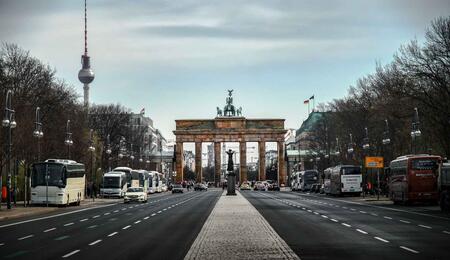Germany Set to Write Cannabis History in Europe

The incoming German government has sent a green light that it will legalize the sale of cannabis goods for recreational use. When it does, it will become Europe's largest legal market.
According to multiple reports issued in German media outlets, the country's three political parties that are due to form a government coalition have come to an agreement they are serious about introducing a tightly controlled regulated market that encompasses the recreational use of weed. Only medical pot has been allowed for use and consumption in Germany until now.
Representatives from the parties told media on Thursday that they were working on suggestions for "introducing the controlled distribution of cannabis to adults for recreational purposes in licensed shops." The coalition, however, intends to do a major, four-year-long evaluation to assess the law's implementation and effects on German society.
Some coalition parties, such as the Green party and the business-orientated FDP, have been vocal for a regulated market for years now. According to some projections, setting up a legal industry will generate over €4.7 bn ($5.3 bn) for Germany, one of Europe's biggest and most populous countries.
A law that regulates pot will bring Germany a significant new source of tax money while it reduces spending on law enforcement. The incoming government also plans to expand drug-checking models where users will be able to check the chemical composition of their drugs to confirm it's free of harmful substances. Protecting children will also be amongst the priorities of the new law.
While sales and possession should be made legal under a new law in Germany, the coalition partners did not comment if homegrowing cannabis for personal use will also be made legal.
Not everyone in Germany however supports decriminalization going forward. German police unions have firmly opposed legalization, with the head of the union, Rainer Wendt, saying, "It would be the beginning of a stoned future instead of the launch of modern Germany." The police union also mentioned plans to form a coalition against the legalization.
With or without police blessing, the legalization effort proposed by the German political parties should place the country in a company of only a few other European countries where recreational use of cannabis is legal. But hopefully, Germany also triggers a continent-wide effect that speeds up decriminalization elsewhere.
Sales and use of cannabis are tolerated under Dutch law, and last month, Luxembourg became only the second EU country to legalize cannabis for adult use. Luxembourg is also the first to legalize homegrowing for personal use, something which remains illegal in the Netherlands. Other countries with advanced cannabis laws include Spain and the Czech Republic. Italy may join the list after a petition to decriminalize cannabis collected over half a million signatures needed to convert decriminalization into an eligible question for a referendum next year. All in all, Europe is currently a very exciting place for the future of the cannabis movement!





